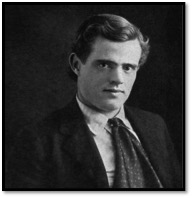
By Susan JAMES
“There was no sun or promise of sun, although there was not a cloud in the sky. It was a clear day. However, there seemed to be an indescribable darkness over the face of things.”
So begins writer Jack London’s epic short story, “To Build a Fire,” with a description originally published in 1902 that might have described the world in 2020.
Focused on man’s primal battle with an unforgiving nature, London’s killer Yukon is an apt metaphor for the world’s current battle with nature’s killer virus. One bright light in this indescribable darkness is a new competition in honor of London and targeted at young aspiring writers. During his lifetime London was eager to challenge and encourage emerging storytellers.
“Now you, young writer, have you something to say or do you merely think you have something to say? If you have, there is nothing to prevent your saying it. If you are capable of thinking thoughts which the world would like to hear, the very form of the thinking is the expression. If you think clearly, you will write clearly.” Exceptionally good advice for writers young and old.
Born just 145 years ago, on Jan. 12, 1876, London is now memorialized both in his writings and at the Jack London State Historic Park, his former home near Glen Ellen in Sonoma County, California. In his name, the Park Partners have recently launched their Sixth Annual Young Writers Contest for students in grades six through eight. Entries must include an original 2,000-word work of fiction on the subject “Coping with Isolation,” inspired by London’s own meditation on the subject in “To Build a Fire.” First place prize is $250 and a free pass for admission to the park for one car with guests. Submissions must be in English and the deadline for entering is March 31.
The chosen theme of survival in isolation was suggested by the current extended quarantine during the pandemic when students have had to adopt remote learning techniques isolated from their classmates and their teachers. How one copes and adapts to such a demanding environment echoes the themes in London’s own short story.
“Beginning as a high school student, Jack London wrote about adventure, travel and true stories. Throughout his life, he made it a practice to write 1,000 [words] every day. We want to encourage young writers to discover his works and be inspired to develop their own writing style and voice,” said Matt Leffert, executive director of Jack London State Historic Park.
The contest website is https://jacklondonpark.com/annual-young-writers-contest/ and the submission form can be found at https://tinyurl.com/y4phrfjp.
Good luck to all future Jack Londons!
